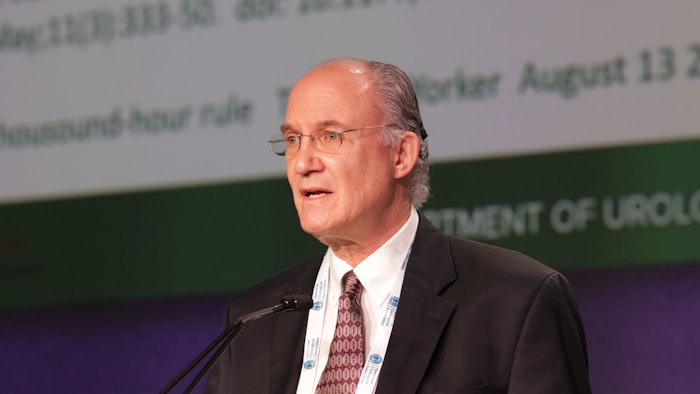Lifelong learners make better urologists
The extra time and effort are worth it.

A man of superior intellect, John W. Duckett Jr., MD (1936-1997), was a giant in the field of pediatric urology. “I had the opportunity to spend a weekend with Dr. Duckett and his advice stuck with me: ‘Every year, reflect on what you’re doing, look at your errors and look at what others are doing and try to learn from them,’” said David Joseph, MD, FACS, FAAP, professor and vice-chair of academic affairs in the department of urology at the University of Alabama at Birmingham and the Beverly P. Head Endowed Chair in Pediatric Urology at Children's of Alabama.
In honor of Dr. Duckett’s memory, Dr. Joseph presented the John Duckett Memorial Lecture: “Lifelong Learning, What’s In it for Me?” on Sunday. Becoming a lifelong learner, defined as self-initiated continuous education, learning that occurs outside a formal educational institute that is focused on personal development, has never been more important for the field of urology, Dr. Joseph said.
“Of all the specialties, urology has one of the most rapid growths of medical knowledge,” Dr. Joseph said. Patients expect you to stay current. According to a 2018 University of Chicago survey, 98% of patients assume their physician is up to date in knowledge and skill. Still, there’s a tendency to coast. During the 20- to 30-year core of your career, you’ll gain experience, wisdom and skill expertise. “But the concept of ‘I learn from my patients’ is nonanalytical practice. It results in greater confidence and the illusion of competence, known as the Dunning-Kruger effect—believing you’re more competent than you are,” he said.
To become a lifelong learner, Dr. Joseph recommended participating in repeated short activities with periodic testing (which are more apt to stick with you compared to binge learning), identifying knowledge gaps and exposing yourself to novel concepts. The extra time and effort will be worth it.
“You’ll be happier, more satisfied with your job; you’ll stay connected and up on the latest advancements in the field and improve your own cognition,” he said.